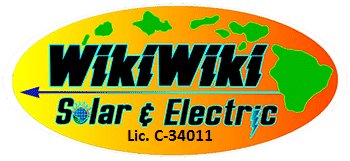Planning Ahead: What to Consider When Installing A New Roof for Solar Panels
Investing in solar panels is a significant decision, and planning ahead is crucial. One often overlooked aspect is the condition of your roof. Is it prepared to support the additional weight and hardware of a solar panel system? Let’s dive into what you need to consider when evaluating your roof for a solar installation. Here’s expert advice from local solar installers Maui to help make your property solar-ready.
While a new roof isn’t always required, if yours is nearing the end of its lifespan, it’s smart to consult a solar panel installation company Maui before replacing it. Addressing any roofing issues in advance ensures your new solar investment has the best chance of success.
When Do You Need a New Roof for Solar Panel Installation?
Start by assessing the condition and age of your current roof. Most roofing materials come with warranties ranging from 15 to 25 years. If your roof is over 15 years old, it might be nearing the end of its useful life. Watch for signs such as:
- Loose, cracked, or missing shingles
- Curled or cupped shingles
- Excessive moss or algae growth
- Water stains or leaks inside your home
- Granules washing away from asphalt shingles
An older roof might not be structurally sound enough to bear the extra weight of solar panels for many years. Plus, the roofing surface needs to stay watertight to prevent water intrusion behind the panels. Top local solar installers Maui can conduct a no-obligation roof inspection to determine if replacement is necessary before moving forward with your solar design and installation.
Key Requirements for a Solar-Ready Roof
If you need a roof replacement, contacting a leading solar panel installation company Maui, like WikiWiki, ensures your new roof meets the specific needs for supporting solar panels long-term. Key considerations include:
- Sturdy Roof Structure: It should be strong enough to hold the weight of panels without deflection or damage.
- Smooth, Flat Surface: Solar panels require strong attachment points and an even plane for optimal performance.
- Durable Materials: Thicker, longer-lasting roofing materials that can outlast the full solar warranty are ideal.
- Proper Ventilation and Moisture Control: Good airflow and leak protection are essential under solar panels.
- Electrical Safety: Wiring needs space to penetrate the roof safely, avoiding foot traffic and debris.
By partnering with local solar installers Maui with solar expertise, you can ensure your new roof is optimized for solar from the ground up.
Coordinating Roof Replacement with Solar Installation
If your home is ready for solar but needs a new roof first, here are a few strategies for timing the projects:
- Simultaneous Planning: Ideally, replace the roof just before solar installation. This allows your roofer and solar provider to consult on materials and mounting requirements.
- Staggered Installation: You might replace the roof first and wait a few months before installing solar panels. Just consult with the best solar panel installation company Maui for guidance.
- Long-Term Planning: Plan roof and solar installations 6-12 months apart to allow for material lead times, inspections, permits, and scheduling work around weather.
Taking an organized approach with trusted local solar installers Maui ensures your new solar-ready roof and power generation system are perfectly aligned.
In Summary:
Evaluating your roof and seeking expert guidance from your solar installer can significantly impact the lifespan and returns of your PV investment. The expertise of the top solar panel installation company Maui helps you develop an integrated, budget-friendly solution to power your home sustainably for decades. Coordinate with WikiWiki today to discuss your specific needs and start planning for a convenient, long-lasting solar power system.
